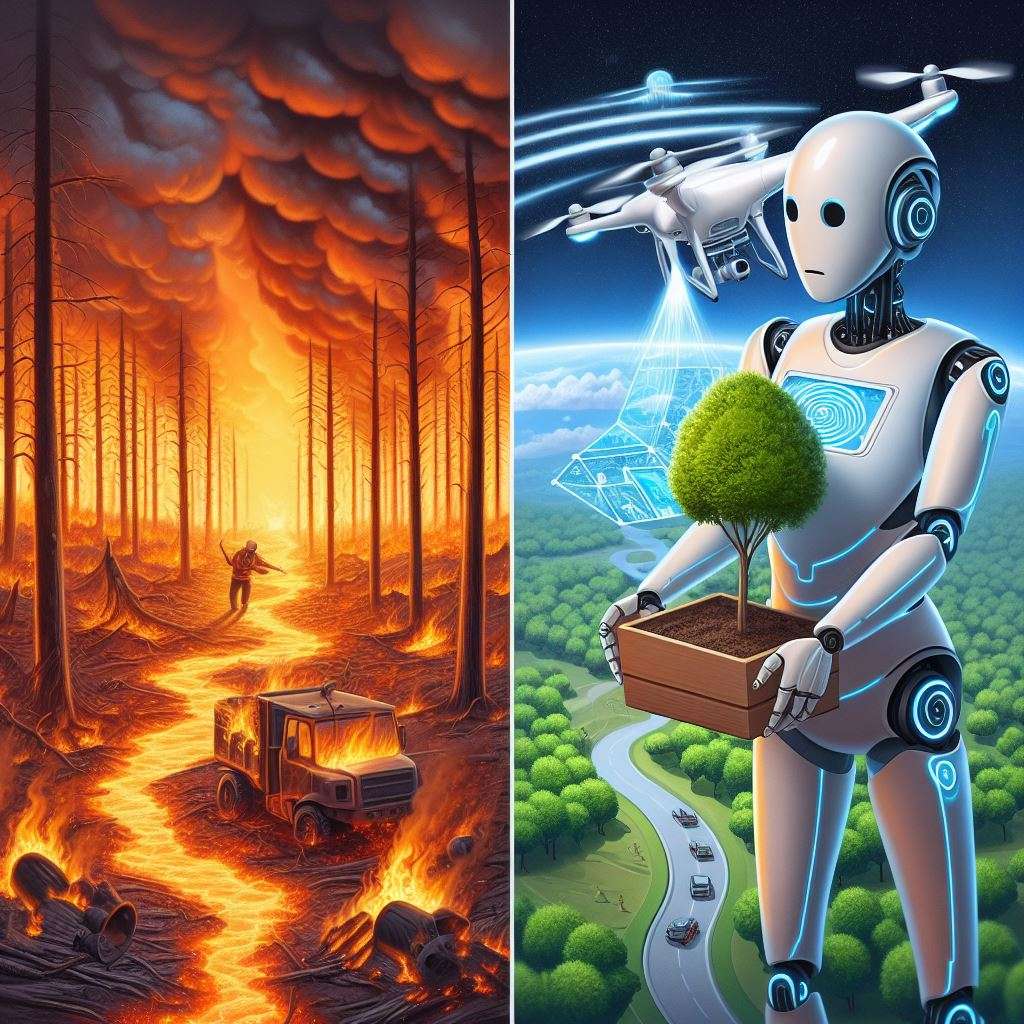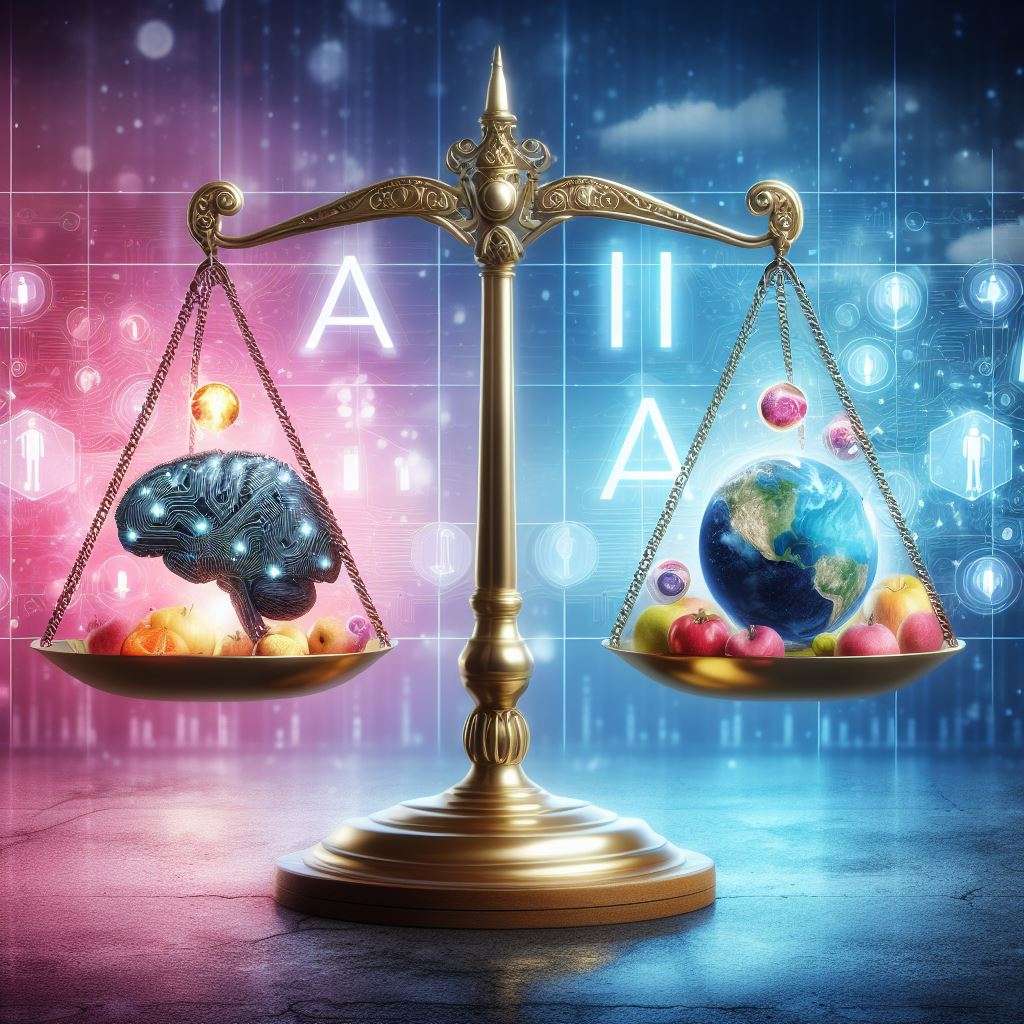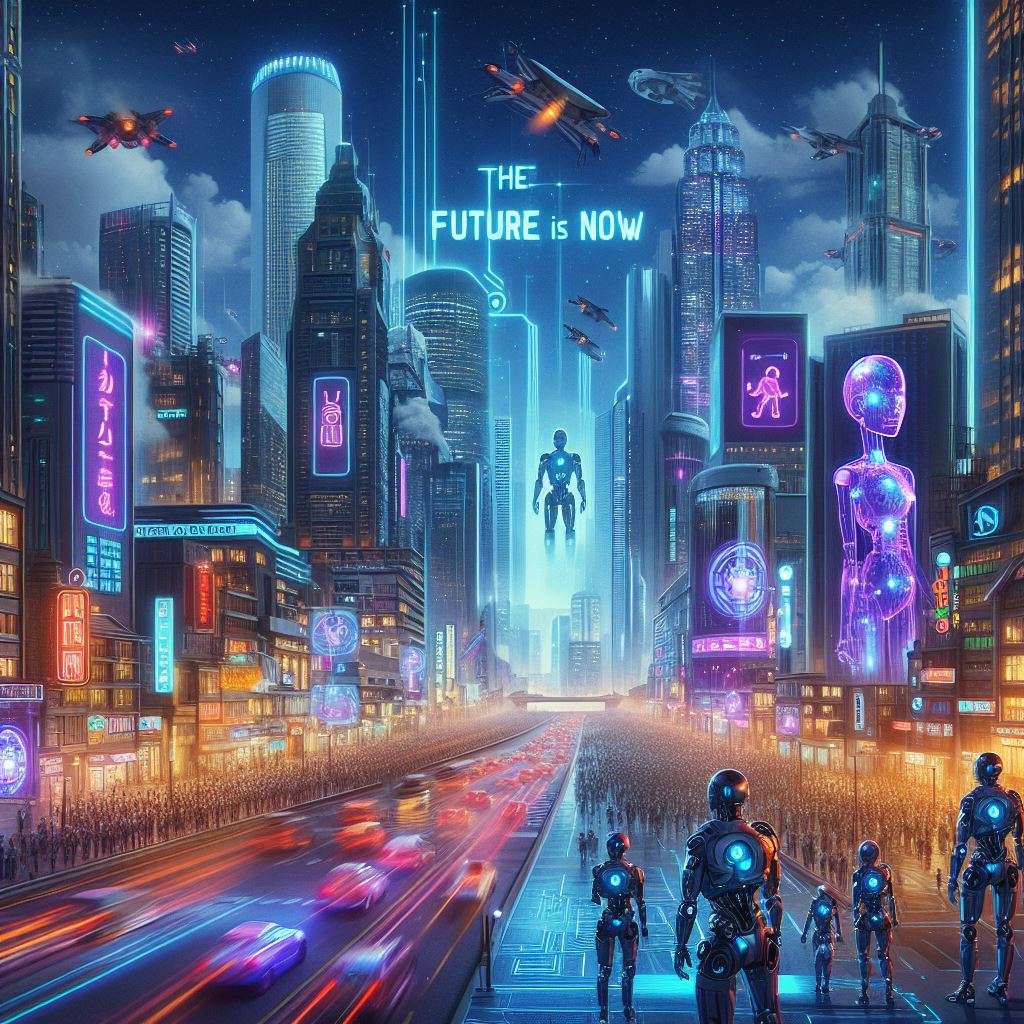Remember when self-driving cars were science fiction? Today, they’re delivering pizzas. Remember when talking to your computer was a fantasy? Today, it’s a reality. Artificial intelligence (AI) is no longer a distant dream, but a present reality that is transforming every aspect of our lives. From healthcare to climate change, from creativity to entertainment, AI is revolutionizing how we interact with the world and each other. In this article, we’ll explore some of the key areas of AI innovation that are reshaping our world and what they mean for us.
AI for Healthcare
One of the most promising and impactful applications of AI is in the field of healthcare. AI is revolutionizing how we diagnose, treat, and prevent diseases, as well as how we improve the quality and accessibility of healthcare services. Some of the promising advancements in this area include:
- AI-powered medical imaging analysis: AI can help doctors detect and diagnose diseases such as cancer, Alzheimer’s, and COVID-19 by analyzing medical images such as X-rays, CT scans, and MRI scans. AI can also help doctors monitor the progression and response to treatment of these diseases. For example, Google’s DeepMind developed an AI system that can detect breast cancer more accurately than human radiologists.
- Virtual assistants for doctors: AI can help doctors save time and improve efficiency by providing them with virtual assistants that can handle tasks such as scheduling appointments, taking notes, and retrieving information. AI can also help doctors communicate with patients and provide them with personalized and tailored advice. For example, Babylon Health developed an AI-powered chatbot that can triage patients and provide them with medical information and guidance.
- Robots assisting in surgery: AI can help surgeons perform complex and delicate operations with more precision, accuracy, and safety. AI can also help surgeons train and improve their skills by providing them with feedback and simulation. For example, Intuitive Surgical developed a robotic system called da Vinci that can assist surgeons in performing minimally invasive surgery.
AI for Climate Change
Another crucial and urgent application of AI is in the field of climate change. AI is being used to predict weather patterns, monitor environmental changes, and develop sustainable solutions. AI can help us understand and mitigate the effects of climate change, as well as adapt to its consequences. Some of the examples of AI-powered climate solutions include:
- AI-powered climate models: AI can help scientists and policymakers create more accurate and reliable models of the Earth’s climate system and its future scenarios. AI can also help optimize and automate the data collection and analysis process, as well as incorporate new sources of data such as satellite imagery and social media. For example, Microsoft’s AI for Earth program supports researchers and organizations that use AI to address environmental challenges.
- Early warning systems for natural disasters: AI can help us detect and respond to natural disasters such as floods, earthquakes, and wildfires by providing us with early warning systems that can alert us of the impending danger and suggest the best course of action. AI can also help us assess the damage and coordinate the relief efforts. For example, IBM’s Watson AI can help predict and prevent floods by analyzing weather data and river levels.
- AI-driven renewable energy optimization: AI can help us transition to a more sustainable and clean energy system by optimizing the production, distribution, and consumption of renewable energy sources such as solar and wind. AI can also help us reduce energy waste and improve energy efficiency. For example, Google’s DeepMind developed an AI system that can reduce the energy consumption of its data centers by 40%.

In a powerful visual duality, one image portrays the harrowing consequences of climate change, featuring a burning forest as a poignant symbol of environmental devastation. In stark contrast, the second image depicts a hopeful scene where AI technology takes center stage in the fight against climate change, exemplified by an AI-powered drone diligently planting trees. This visual narrative encapsulates the urgent dichotomy between environmental crisis and innovative solutions, illustrating the pivotal role AI plays in actively mitigating the adverse impacts of climate change.
AI for Creativity and Entertainment
A more surprising and delightful application of AI is in the field of creativity and entertainment. AI is enhancing artistic expression, personalized entertainment experiences, and human-computer interaction. AI can help us unleash our creativity, discover new forms of art, and enjoy immersive and engaging entertainment. Some of the examples of AI-powered creativity and entertainment include:
- AI-powered music composition: AI can help musicians and composers create new and original music by generating melodies, harmonies, and rhythms. AI can also help music lovers discover new and personalized music recommendations. For example, AIVA is an AI-powered music composer that can create music for various genres and moods.
- Personalized movie recommendations: AI can help movie fans find the best movies to watch based on their preferences, tastes, and moods. AI can also help moviemakers create more appealing and diverse movies by analyzing audience feedback and behavior. For example, Netflix uses AI to provide personalized movie recommendations and optimize its content production.
- Immersive virtual reality experiences: AI can help us experience realistic and immersive virtual reality (VR) by creating lifelike and interactive environments, characters, and scenarios. AI can also help us enhance our VR experiences by adapting to our emotions, preferences, and actions. For example, Facebook’s Oculus VR uses AI to create realistic and expressive avatars and social VR experiences.
The Ethical Landscape of AI
While AI offers many benefits and opportunities, it also poses many challenges and ethical considerations. As AI becomes more powerful and pervasive, we need to ensure that it is developed and deployed responsibly and ethically. Some of the potential issues and dilemmas surrounding AI include:
- Bias: AI can inherit and amplify human biases and prejudices, leading to unfair and discriminatory outcomes. For example, facial recognition systems can be less accurate for people of color and women, resulting in false identifications and arrests.
- Privacy: AI can collect and analyze large amounts of personal and sensitive data, leading to privacy breaches and security risks. For example, voice assistants can record and store private conversations and personal information, exposing them to hackers and third parties.
- Job displacement: AI can automate and replace many human tasks and jobs, leading to unemployment and income inequality. For example, self-driving cars can eliminate the need for human drivers, affecting millions of workers in the transportation industry.

A scale balancing the benefits of AI on one side and the potential risks on the other represents the need for ethical considerations in AI development. These issues and dilemmas require us to think carefully and critically about the ethical implications and consequences of AI. We need to establish and follow clear and transparent principles and guidelines for AI development and use, such as fairness, accountability, and privacy. We also need to ensure that human values and interests are respected and protected by AI.
Conclusion
AI is a powerful and transformative technology that is reshaping our world and our lives. AI can help us solve global challenges, improve human well-being, and enhance human potential. AI can also create new and exciting opportunities for creativity, entertainment, and innovation. However, AI also comes with many challenges and ethical considerations that need to be addressed and resolved. We need to be aware and informed of the benefits and risks of AI and participate in shaping its responsible and ethical development and use. The future is now, and AI is here to stay. Let’s make the most of it. 🙌
